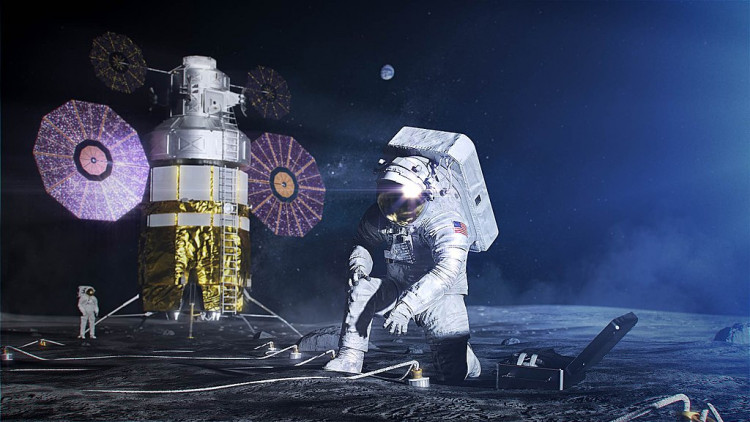New space regulations will be required promptly to support commercial space stations and moon communities, as well as protect against the rapidly expanding space junk.
NASA and other government agencies conveyed this message to the National Space Council's (NSpC) users' advisory group, a collection of members from industry, education, and non-profit organizations that convened in Washington, D.C.
During the livestreamed discussion, NASA deputy administrator Pam Melroy urged the users' advisory group to consider advocating a rapid update of space regulations to prevent "future barriers" to space exploration.
"We are not a regulator; that is not our role," Melroy said of NASA. "We cannot be responsible for all activities on a commercial space station."
Given that U.S. Vice-President Kamala Harris chairs the space council (and spoke with the users' advisory group later in the day about their work), feedback from these meetings could potentially be utilized to shape space policy for Earth and lunar exploration and beyond.
As NASA's Artemis program intends to place humans and commercial payloads on the moon by 2025, and as the ISS is opened to private personnel and activities, more people and corporations than ever before have access to space.
SpaceX and Axiom Space are among the benefits, as both companies have flown ISS trips for astronauts under NASA's supervision.
Yet, space law is an extremely difficult field of study. The majority of spacefaring nations have signed the Outer Space Treaty, which oversees international space activity. Nonetheless, the pact was negotiated during the 1960s, when government operations dominated.
More recently, dozens of signatories of the NASA-led Artemis Accords have pledged to peaceful work in the 2020s and beyond, and to eventually develop new guidelines for lunar exploration.
Yet, not everyone agrees on space regulations. To cite a few instances: China's habit of allowing massive rockets to fall to Earth uncontrolled has been denounced by the Joe Biden administration of the United States. Russia's intention to conduct an anti-satellite test in orbit in 2021 generated space debris that threatened not only the International Space Station (ISS), but also SpaceX Starlink satellites that provide Internet connection to remote communities on Earth.
SpaceX has been criticized for producing satellites that are already interfering with astronomy and Indigenous studies; nevertheless, the company just reached an agreement with the National Science Foundation to implement mitigations.
More generally, the space sector is under increasing pressure to clean up space debris responsibly, launch less polluting rockets, and promote inclusive work cultures for individuals of all backgrounds, genders, and ethnicities.






